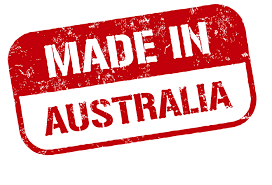What Does the Change in Government Mean for Procurement?
The Federal election was held on 21 May 2022, and a new Labor Party was elected to Government for the next term.
As with any new Government, especially when there is a change in the dominant party, we can expect to see some important changes to policy in Australia.
In relation to Procurement, this will include two important, controversial, and some would say overdue policies being:
- the creation of a National Anti-Corruption Commission
- The Labor Buy Australian Plan
National Anti-Corruption Commission
The Labor Party has committed to establishing a powerful, transparent, and independent National Anti-Corruption Commission by the end of 2022.
Labor has committed to ensuring that this Commission will operate with all the independence, resources, and powers of a standing Royal Commission into serious and systemic corruption in the federal government.
The Labor Party states that it will be the most effective anti-corruption watchdog in the country. This will be achieved by:
- Ensuring broad jurisdiction to investigate Commonwealth ministers, public servants, statutory office holders, government agencies, parliamentarians and personal staff of politicians.
- The Commission carrying out its functions independently of government, with discretion to commence inquiries on its own initiative or in response to referrals, including from whistle-blowers and complaints from the public. To ensure independence, the Commissioner (and Deputy) will serve a single fixed term and have security of tenure comparable to that of a federal judge.
- The Commission being subject to bipartisan Joint Standing Committee oversight, empowered to require information about the Commission's work. In addition, the Committee would be responsible for confirming the Commissioners nominated by the Government.
- The Commission having the power to investigate corruption before or after its establishment.
- The Commission having the power to hold public hearing where the Commission determines it is in the public interest to do so.
- The Commission having the power to make findings of fact, including of corrupt conduct, but not make determinations of criminal liability (such matters being subject to referral to the AFP or DPP).
- The Commission operating with procedural fairness (with its findings being open to judicial review).
Only time will tell how effective this Commission will be, but one thing that most agree on is that its introduction is well overdue. In fact, the lack of an independent accountability body for our Commonwealth Government has been a key failure, and an impediment to Australia ranking better in international indices concerning transparency and corruption. For example, Australia is ranked 18th in the world on Transparency International's index (slipping 4 places since 2020) compared to NZ which ranks in equal first place.
The Labour Buy Australia Plan

The issue of government preferencing in relation to its procurement is a highly controversial topic, and one that has some very firm and entrenched opinions.
Those against consider this to effectively be subsidising the local market through taxes and / or rates, whilst those in favour consider that Government should apply local preferencing so as to provide long term job security for Australians, and that local industry continues to flourish and develop by enjoying this significant investment.
Government is in a unique position to make an enormous difference with the total value of procurement contracts awarded by the Commonwealth Government in 2020 to 2021 being almost $70 billion.
The recent call for 'localisation' has also been born out of the global Covid pandemic, brought into sharp focus through countries' ill-preparedness and local sources of supply to meet the demands of this crisis, and the associated international logistics and supply chain issues that have put enormous pressure on almost every part of the economy (and domestic households).
The Buy Australia Plan comprises:
- Establishing a 'Future Made in Australia Office', reinforced by changes to the CPRs to support local industry and take advantage of government purchasing opportunities.
- Maximise opportunities for Australian businesses in infrastructure projects.
- Increase opportunities for SMEs by simplifying procurement process.
- Establish a Secure Australian Jobs Code to prioritise secure work in government contracts and ensure that government purchasing power is being used to support businesses that engage in fair, equitable, ethical and sustainable practices.
- Provide more opportunities for First Nations businesses, including upskilling First Nations workers to promote long-term skilled work.
- Level the playing field by ensuring those that win government contracts pay their fair share of tax.
- Strengthen Defence industries and capability.
- Make National Partnerships work to maximise the use of local workers and businesses.
Some of the measures mentioned above to promote Australian procurement are already in place, including those that relate to SMEs, Indigenous Procurement, Defence industries, and Sustainable Procurement.
Any changemaking Buy Australia Plan will need to be carried out carefully in light of: (i) Australia's relatively recent commitment to the Trans Pacific Partnership (30 December 2018); and (ii) it recently becoming the 48th member of the World Trade Organisation's Agreement on Government Procurement (5 May 2019), which resulted in the Government Procurement (Judicial Review) Act 2018. These commit Australia to equal treatment in terms of international trade flows and access to Government contract. In addition, any measures to preference Australia and Australian business will need to be properly considered in light of possible loss of international trade flows which would then erode the benefit being sought.
However, these important policies end up being enacted, and woven into Government purchasing, one thing for certain is that it will be a very interesting time for those involved in Government procurement.
Blog post submission: Scott Alden, HWL Ebsworth



